Many years ago after a few major life setbacks, I took my 20-something self to Japan to teach conversational English in an industrial city near Osaka.
Years later after meeting and marrying Roger, we took a two-year leap of faith to teach at an international school in Aleppo, Syria.He taught high school English and I taught middle school social studies in a city four hours north of Damascus.
While I have yet to master any second language, the process of learning by immersion helped me grasp a culture more quickly than did learning in school.
So here’s my theory:the first words learned when landing in a new country speak volumes about that society’s values, outlook, and temperament.
First Words I learned when immersed:
in Japan
1. yes (hai)
2. please (kudasai)
3. excuse me (sumimasen)
4. thank you (arigato)
5. beautiful (kirei)
6. strong, well (genki)
7. where? (doko)
8. how much? (ikura desuka)
9. foreigner (gaijin) maybe (tabun)
10. cute (kawaii)
in Syria
1. whenever (insha’llah)
2. tomorrow (bukra)
3. oh well (maalesh)
4. no (laa’)
5. good (kwayyis)
6. thank you (shukran)
7. where? (wein)
8. how much? (addeish)
9. coffee (ahwe)
10. I want (biddi)
Looking at the lists, what generalizations can I make about Japanese culture? The Japanese value agreement and politeness (yes, please, excuse me).And with several words for pleasantness (beautiful, well, fine), I confirmed what the guidebooks said about the importance of building agreement. Both language and everyday rituals grease the wheels in a society where people practically live on top of each other.
My first day teaching in Japan, I showed a photo of my family to my new coworkers, four bilingual Japanese women.My grandma was promptly declared cute, kawaii.
And so were my younger sister, a small pen I carried, and my shoes. Women used kawaii frequently both to describe and to build rapport through giggling.
And what about Arab culture?Like people in other Mediterranean countries, Syrians are laid back and speak their minds.There’s a joke in one of the guidebooks that to get by in an Arab country, you only need to learn “IBM” — Insha’llah, Bukra, Maalesh — because all you need to know is “whenever,”“tomorrow,” and “oh well.”Throw in the very direct (and non-Japanese) “no” and you’re set.
When will the school’s copier be fixed?Bukra – not a fixed point in time like our “tomorrow,” but a relative term meaning more like “not today.”
Will the landlord have our hot water heater working again soon? Maalesh – don’t worry, no problem. Be happy.
How long will it take to process my visa? – I really need my passport back. Insha’llah – God willing – you’ll have it back bukra. Don’t worry — maalesh.
Common in Syria, ”no” and “I want” are considered too direct for the Japanese, who prefer more nuanced words like “maybe” and “please” spoken verbally and with finely tuned body language.
I often wonder which would be among the first terms a non-American-speaking visitor would learn in coming to live and teach in the United States. Credit card and carpool? Dow Jones and download? American Idol and American troops? iPod and YouTube? Speed limit and speed dating?
And what would this list say about our values, our outlook, and our temperament?
Do you have any immersion insights?

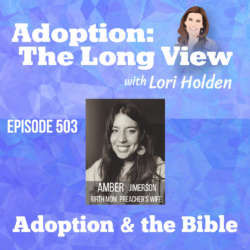
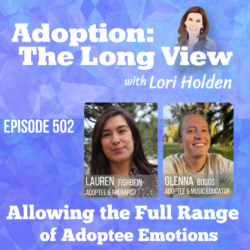
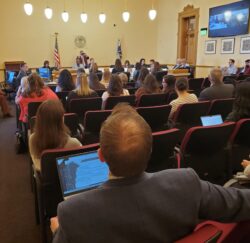
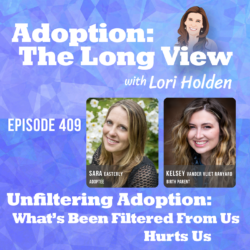

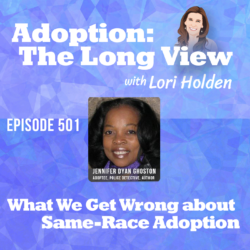

17 Responses
Fascinating.One of the first words I learned in Japan was “gaijin”: foreigner, outside person, not one of us. I don’t think I’ve been anywhere that is more conscious of who’s native (racially and by birth) and who isn’t, and as you know I’ve been a lot of places (but none other so different as Japan).Funny that “bathroom” isn’t on your lists. In any language, that’s always at the top of mine!
Oh how I remember the “inshalla” comment in West Africa – if God wills it!! When will it rain? Tomorrow, <>inshalla<> (emphasis on the last “la”)! There was a lot of Arabic influence in the native language I spoke. “Alhumdillay” (another Arabic word) got you far in greetings. It’s translated, “praise be to God!” You could go around saying this to everyone and not understand another word, and they would think you were fluent in their language and very polite. They also had buses with “Alhumillay” painted on them, so we just called them “Alhumdillays” instead of “bus”. “I’m going to catch an Alhumdillay to the next town!” I just checked google, and it seems it’s spelled Alhumdillah.
I love your observations of the words, your experiences and the cultures of these foreign places.If I added to the list, it might also include: dude (I have teenagers), texting, how can I help you? blogging, too busy/over-scheduled, time flies, To Do list, gratitude, blessed, possibilities, I wonder if, etc…As I type these, I realize they are the top phrases in MY world, which happens to be in the US. I bet each person could come up with a list of their own and it would describe the world in which they live most of the time.
I love this. whenever we travel, I do my best to learn a reasonable amount of words and phrases. I love your insight as to how those first 10 words are so different in each culture. and what they might be for a visitor to the US. don’t forget kampai (bottoms up)!
I don’t have any real insights because I was very young when we lived overseas. I’ll see if I can get my dad to weigh in on this one. He would have some fascinating observations.
You are absolutely right! How could I have forgotten gaijin? I was called it more times than I can count.Yup. Should be on the list.Reflective, perhaps, of the insular nature of an island nation. I certainly didn’t see the same in Syria (crossroads of so many peoples), but I *did* see some nationalism from Armenians, Kurds, Palestinians, Syrians, etc.
Fascinating.One of the first words I learned in Japan was “gaijin”: foreigner, outside person, not one of us. I don’t think I’ve been anywhere that is more conscious of who’s native (racially and by birth) and who isn’t, and as you know I’ve been a lot of places (but none other so different as Japan).Funny that “bathroom” isn’t on your lists. In any language, that’s always at the top of mine!
I lived in Italy and Spain both for 4 months in college. I was in Italy when I was 20 and even though I had been studying the language, my immersion was quite an experience. I lived with a woman who spoke no English. Same thing with Spain. The family I lived with spoke no English. It is a totally different experience learning a language through immersion and living in country than learning in a classroom. Foreign Language is my BA. I was told by an advisor that studying abroad to a language major is equivalent to residency for an MD. I agreed. Anyway, when I lived in Europe I was sad to hear what Italians and Spaniards thought of Americans. To sum it up- they love to hate us. First words for America would be McDonald’s, Fat, rude. Or – New York City, Hollywood. Both Spain and Italy were what you would expect of the feeling of schedules and timing. Everything is maybe, tomorrow, if. More English words for them to learn are- when, what time, reservation!I could go on and on. I actually have a post in the making about my studies in Europe.
Love this post or should I say amore?Hmm, my immersion language experiences taught me that-The Brits top ten words are either a cussword or alcohol related.Italia – Buono Appetito, espresso, and watch your tush.Los Angeleno Hispanic – comida buena mas, la familia, futbalGracias, mi amiga.
My dad always taught us that the essentials in any language are:yes, no, please, thank you, numbers up to 5, and how to order beer. I’m trying to think what my first 10 were in Danish..
It is very interesting to see how these words say so much about the Country and it’s people.
Oh well, my travel list is far more restricted and less fascinating than what the ladies here have reported…but I have met IRL people as well who belong to different nationalities.In 2007, I was away from home and family attending a conference. My birthday fell on one of the conference dates….that particular day, interacting with a Portugese delegate, he taught me a beautiful word – Saudade.I have taken it as a wonderful gift…one which has no physical evidence, but had a huge impact on me. Hey I left a comment for you on the BSITB blog….
That is fascinating. I’m not immersing myself although I do have a lot of spanish speaking patients and I’m very slowly picking up some words. I wish I was picking them up quicker.I’ve never been out of the US though.
Kristin — let me know what he says.Luna — kanpai was certainly used often!Sheri — great list of possibilities.Phoebe — “Alhamdullah” was big in the Levant, too, different spelling. Lots of words with “-llah” in them, showing great devotion.
Very interesting thought! Hubby and I have only made one trip overseas and it really opened my eyes to a lot of things. Especially to wonder how the US and Americans were viewed.Sadly, the first words learned would probably be “Cool” or “Sweet.”
Interesting post and comments.
When I was in The Gambia – a country hugely influenced by NGO’s and tourists the first words were:
Tobob – White person
O kam – give me
Kids and sometimes grown men would approach me – or run after me – and say Tobob! O kam Dalasi (the local currency)
It was a very direct country as well and I never got used to not having a word for please.
I was an au pair in Greece for a summer as a student and can still remember:
then thelo – I don’t want
fronima – behave yourself
skasmos – shut up!
phaye to phayeto – eat your dinner
and
thes cafe? – do you want coffee?
(the girl I was minding was a PAIN but her family were really polite!)